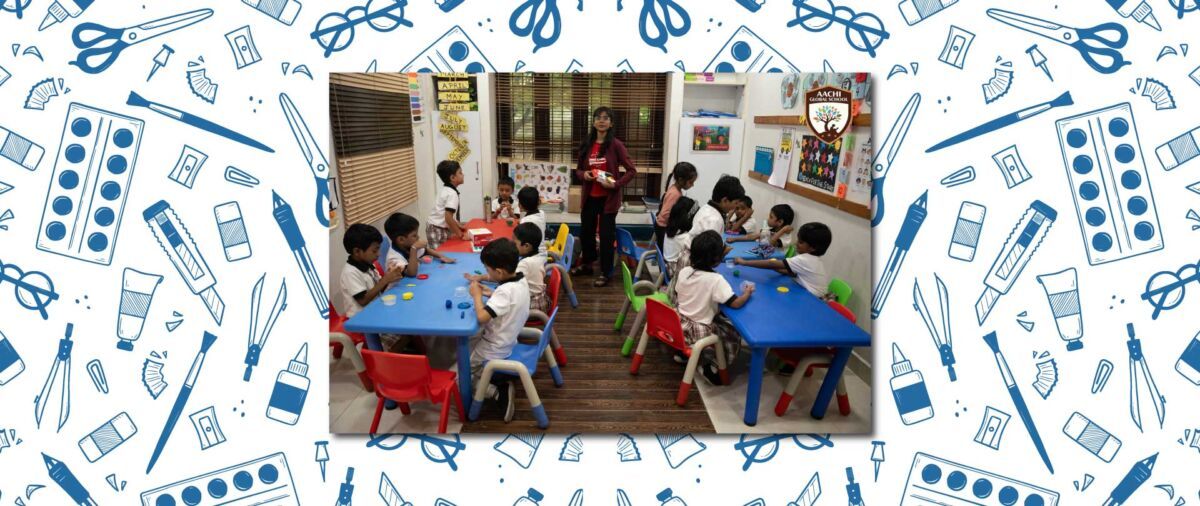Early childhood education in India is more than just the foundation for academic learning; it is the cornerstone of a child’s overall development, shaping their social, emotional, and cognitive abilities during the most formative years of life. In a country as diverse and culturally rich as India, early education plays a crucial role in bridging gaps and fostering inclusivity. This blog explores the landscape of early education in India, emphasising its significance, the benefits it offers and the best school offering programs for early childhood in India.
Looking for early education schools in India? Look no further! Aachi Global School is one of the best schools for early childhood education in India offering a curriculum that helps students learn at their own pace and style.
Admissions for 2025-26 are now open at AGS Anna Nagar and Ayanambakkam. Enrol today!
What is Early Childhood Education in India?
Early Childhood Education in India refers to the structured and systematic approach to nurturing and educating children from birth to six years old, a critical period for brain development and learning. In this phase, children are introduced to foundational concepts through play-based learning, storytelling, and hands-on activities that stimulate curiosity and creativity. Early education in India has evolved to incorporate both traditional values and modern pedagogies, aiming to create a holistic environment where children can develop essential skills, such as language, motor abilities and social interaction. As awareness of the importance of early childhood education in India grows, more parents are seeking quality programs that provide a strong start, ensuring their children are prepared for future academic success and well-rounded development.
Also Read: What is Preschool Education?
Importance of Early Childhood Education
Early Childhood Education (ECE) is pivotal in laying the groundwork for a child’s lifelong learning and development. It is during these early years that children’s brains are most receptive to absorbing new information, making it crucial to provide a nurturing environment that fosters cognitive, emotional, and social growth. ECE helps in building a strong foundation for academic success and encouraging positive social behaviours. By instilling a love for learning early on, children are more likely to develop the confidence and curiosity needed to navigate future educational challenges, ultimately leading to a more successful and fulfilling life.
Also Read: Importance of Preschool Education.
Early Education in India - Curriculum
The curriculum for early education in India is designed to provide a holistic and balanced foundation for young learners, focusing on the development of key skills across various areas. It typically includes language and literacy, where children are introduced to the basics of reading, writing, and communication; numeracy, which involves hands-on activities that help children understand numbers, shapes, and patterns; and personal, social, and emotional development, which emphasises self-awareness, empathy, and social interaction. Additionally, the curriculum for early childhood education in India often incorporates environmental studies, physical education to enhance motor skills, and creative arts to nurture imagination and self-expression. This well-rounded curriculum for pre-primary education in India ensures that children develop the cognitive, social, and emotional skills necessary for future academic success and overall well-being.
Early Childhood in India Programs - Approach
The approach to education for early childhood in India is centered around the belief that children learn best when they are actively engaged and supported in a nurturing environment. Play-based learning is a core component, encouraging children to explore and discover through interactive and enjoyable activities. Child-centered teaching further personalises the learning experience by tailoring lessons to each child’s unique interests and needs, making education both relevant and engaging. Additionally, the approach emphasises social and emotional growth, recognising that strong social skills and emotional intelligence are vital for a child’s development. By fostering a supportive and dynamic learning environment, early childhood education in India aims to instil a lifelong love for learning while equipping children with the skills they need to thrive.
Also Read: Best Preschools in Chennai 2024.
Aachi Global School - Best School for Cambridge Early Childhood Education in India
Aachi Global School (AGS) is recognised as one of the top schools for providing Cambridge early childhood education in India - a program designed specifically for young learners aged 3 to 6 years. The Cambridge early years programme at AGS is thoughtfully structured to nurture children's cognitive, motor and social skills, laying a strong foundation for their future academic journey. By aligning with the principles of interactive and participatory learning, the program emphasises literacy, numeracy and creativity, ensuring that each child develops essential skills in a dynamic, supportive and engaging environment. AGS's approach for pre primary education in India is holistic, focusing not just on academic excellence but also on fostering emotional intelligence, social awareness and physical development. Through carefully designed activities and a curriculum for early education in India that adapts to the unique needs of every child, AGS helps young learners discover their potential, preparing them for the challenges of formal education while instilling curiosity and a lifelong passion for learning.
Want to know about different curricula, broads of education and learning approaches? Read our blogs!
2025-26 admissions are now open at AGS Anna Nagar and Ayanambakkam. Enrol today!
Below are the Cambridge Early Year Programs Offered at AGS:
Early Year Program 1 – 3 to 4 years
Early Year Program 2 – 4 to 5 years
Early Year Program 3 – 5 to 6 years
FAQs on Early Childhood Education in India
1. What is the age range of early education in India?
In India, early education generally refers to the developmental period from 3 to 6 years old. The programs for early education in India lay the foundation for a child's cognitive, social, emotional, and physical development. During these years, children are most receptive to learning and building essential skills and so the programs are designed to prepare kids for future academic success.
2. Which school is best for early education in India for kids?
Aachi Global School is renowned for providing top-tier early education in India, particularly through the Cambridge Early Years program. Our school is highly regarded for its holistic approach to nurturing young learners, focusing on cognitive, motor and social skill development. The curriculum is designed to align with interactive and participatory learning principles, ensuring that children are engaged and motivated.
3. What is taught in early education classes in India?
Early education classes in India focus on a wide range of developmental areas to ensure a well-rounded foundation for young learners. The curriculum typically includes language and literacy, where children learn the basics of reading, writing, and communication. Numeracy is another key component, introducing children to numbers, shapes, and simple problem-solving through hands-on activities. Additionally, these classes emphasise social and emotional development, creative expression, and physical education to support the holistic growth of each child.




